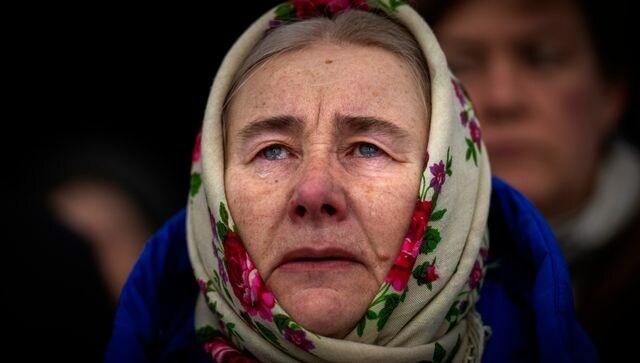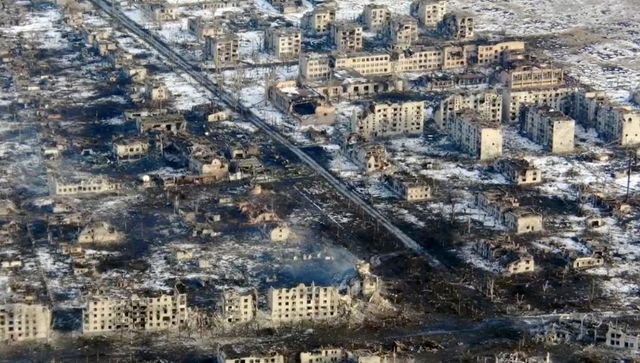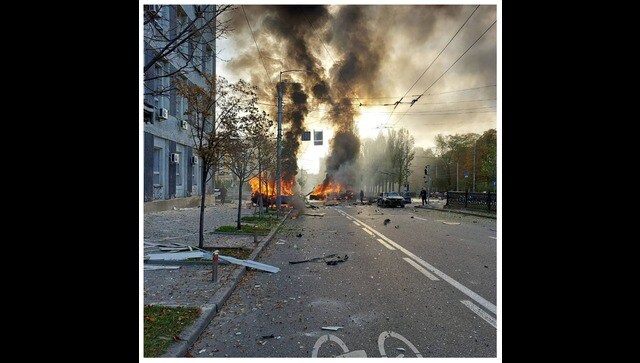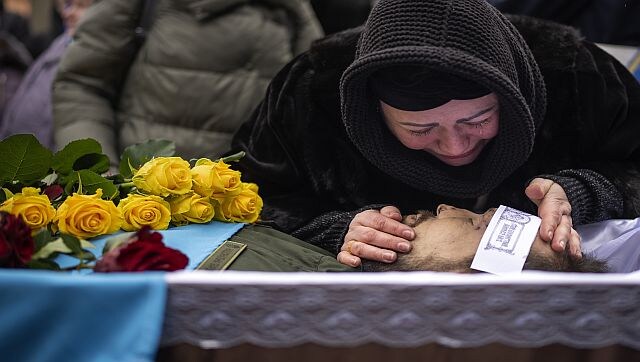Russia’s war with Ukraine completes a year: Has compassion fatigue gripped the world?
Compassion fatigue is emotional or physical exhaustion experienced when someone is constantly exposed to someone else’s trauma which triggers a feeling of helplessness and dejection. Has this feeling already set in as Russia’s war in Ukraine completes a year?

The images and videos of all the doom and gloom brought by Russia's invasion of Ukraine has made many people turn away from such news. Reuters File Photo
After initial outrage and sympathy around the world, not many have kept regular track of Russia’s invasion of Ukraine which began on 24 February last year.
Since then, the world has witnessed inflation, the rising cost of living and even deadly natural disasters in the past year.
The images and videos of all the doom and gloom online have made people turn away from such news. And there’s a word to describe such behaviour – compassion fatigue.
What is this and has it affected the Russia-Ukraine war? Let’s understand.
What is compassion fatigue?
Compassion fatigue, or empathy burnout, is a form of stress or tension that develops in those who are in frequent contact with traumatised people, as per the PositivePsychology.com article.
“Compassion fatigue is when you’re exhausted, whether it’s emotionally, mentally, or physically,” Jenny Yip, a board-certified psychologist and executive director of the Renewed Freedom Center in Los Angeles, told GoodRx Health.
This is common in those working in caring professions such as nursing, firefighting, teaching, or social work.
As empathy subsidies over time, the feeling of “powerlessness, a numbness, a detachment, and a divide between healer and patient” takes over, noted Al Jazeera.
According to GoodRx Health, some symptoms of compassion fatigue include physical, emotional, or mental exhaustion, headaches, digestion issues, sadness, depression, apathy, numbness, and so on.
Notably, compassion fatigue can also develop in the general population if exposed to distressing news over a long period of time.

Brad Bushman, a media researcher at Ohio State University in the United States, told Deutsche Welle (DW) that the “underlying psychological mechanism” that leads to compassion fatigue is desensitisation to violence and trauma.
He said that this desensitisation is a key “adaptive strategy” in soldiers, aid workers and doctors – who are constantly exposed to traumatic events. However, it poses a problem when it is found in the “ordinary” population.
“The consequence of seeing violent images is that you become numb to it and you think violence is no big deal. The real-world consequences are that you’re less likely to help someone who’s a victim of violence,” he told DW.
ALSO READ: One Year of Russia-Ukraine War: The moments that the world shall never forget
Has it affected Russia’s war with Ukraine?
Al Jazeera columnist Andrew Mitrovica underscored in his article last June how media coverage of Russia’s war with Ukraine has reduced over time and how compassion fatigue has set in.
“It has not taken years, but only 100 days for compassion fatigue to begin, I sense, to creep into how people outside Ukraine feel about what is still happening to people inside Ukraine,” Mitrovica said.
“You may have sensed this as well. The outrage and gloom that once were so acute have dulled into resignation. A war that once seemed so close has become, in many ways, distant. The once enthusiastic expressions of solidarity have evaporated in favour of the routine, often mundane, aspects of life,” the columnist wrote for Al Jazeera.
When Russia’s conflict with Ukraine completed 100 days last June, Axios reported citing data by NewsWhip that online media outlets were publishing less content on Ukraine as compared to the start of the war in February.

The data also showed a 22-fold drop in social media interactions – likes, comments and shares – with such content between the first week of the war and the end of May.
Ukrainian president Volodymyr Zelenskyy had told Axios last year that global attention was crucial for Ukraine and also expressed concern that people may get “fed up” and “cynical” and “want something new.”
Speaking to DW, Jessica Roberts, an assistant professor of communication studies at the Universidade Catolica Portuguesa in Lisbon, said she felt compassion fatigue after Russia invaded Ukraine.
“When I first heard about the atrocities it was horrifying, but then I heard about another town and my reaction was less extreme.”
Mitrovica mentioned in Al Jazeera that as the war prolongs without a conclusive result, it is more likely that people outside Ukraine will “lose interest in the fate of people inside Ukraine”.
“The other undeniable phenomenon that Zelenskyy and Ukrainians confront that compounds compassion fatigue is war fatigue.”
“However noble and just Ukraine’s fight is, people across a scarred and dejected globe are weary of war. Weary of hearing about it. Weary of watching it. Weary of being told about the necessity of it. Weary of being weary of war,” Mitrovica wrote for Al Jazeera.
Yasmin Aldamen, at Ibn Haldun University in Istanbul, warned about how compassion fatigue can trigger greater violence and hate speech in society.
“We found that framing negative images and messages of refugees in the media opens the door for audiences to lose empathy for them or even have hatred for refugees,” Aldamen told DW.
But, this fatigue is not permanent, it can be reversed and people can rebuild compassion over time.
As per Aldamen, the media should change the way it depicts refugees and other vulnerable populations and present them in a more humanistic way, reported DW.
“Media outlets need to display some of the more positive stories from the refugee crisis to ensure that people do not suffer compassion fatigue to exposure to tragic stories,” she added.
Aldamen also emphasised that media should “call to action” on people or leaders so that audience or readers can help those in need instead of observing a crisis they feel cannot be resolved, DW reported.
With inputs from agencies
Read all the Latest News, Trending News, Cricket News, Bollywood News,
India News and Entertainment News here. Follow us on Facebook, Twitter and Instagram.
also read

Russia accuses Kyiv of planning to stage nuclear incident on its territory to pin the blame on Moscow
Russia's defence ministry said in a statement that radioactive substances had been transported to Ukraine from a European country and Kyiv was preparing a large-scale "provocation".

How life has changed for Ukrainians a year into the war
As the one-year anniversary of the war approaches, three Ukrainians reflect on their experiences and how the conflict has changed them. The first went from civilian to military life. The second completely changed languages and the third bravely helped keep the country moving along its rail network

History 'should teach IOC a lesson' over Russian Olympic conundrum: Ukrainian ex-athlete
Ukrainian athletes hope political pressure from governments will force the IOC to back down. Otherwise, they warn, a boycott may be necessary.
